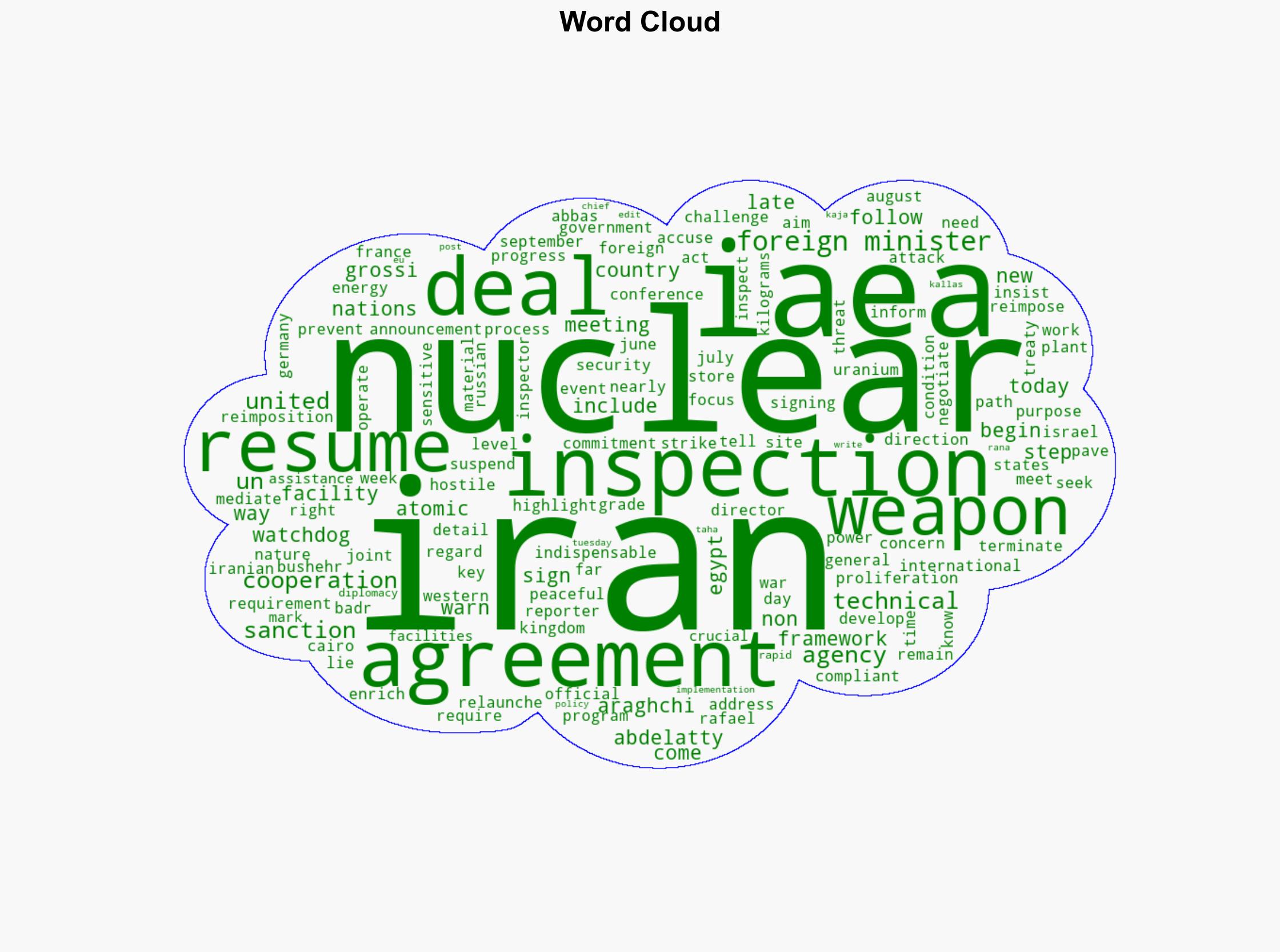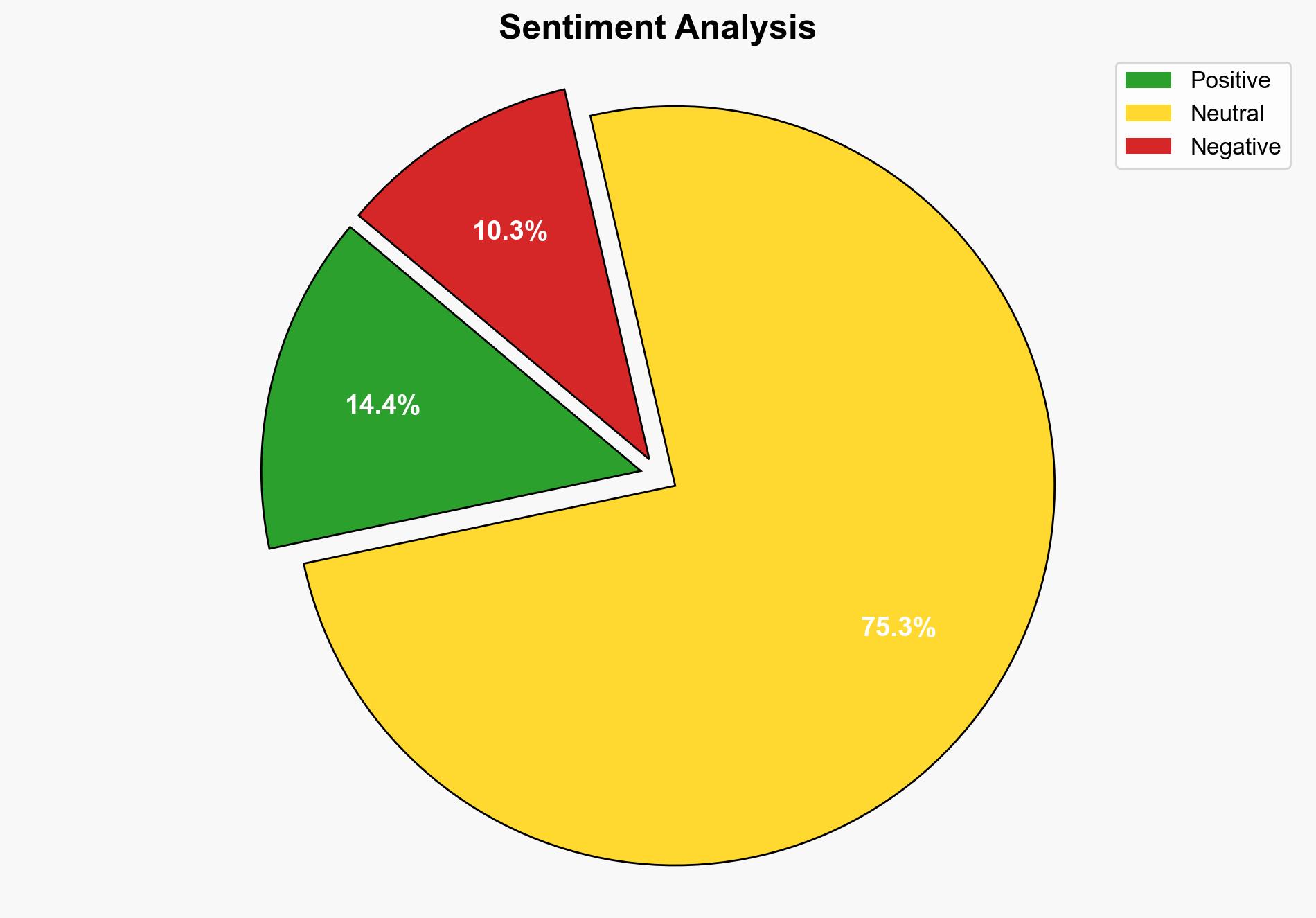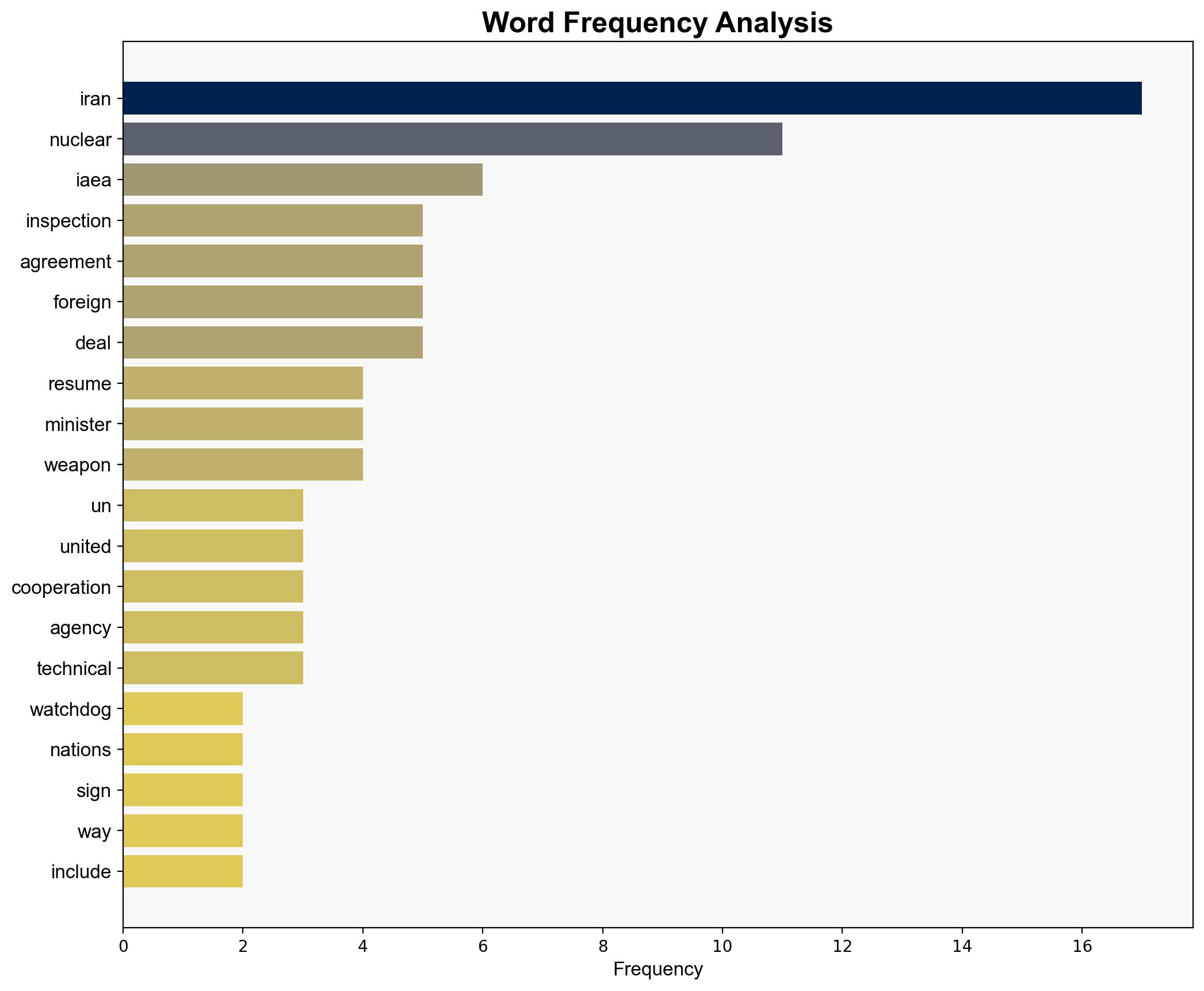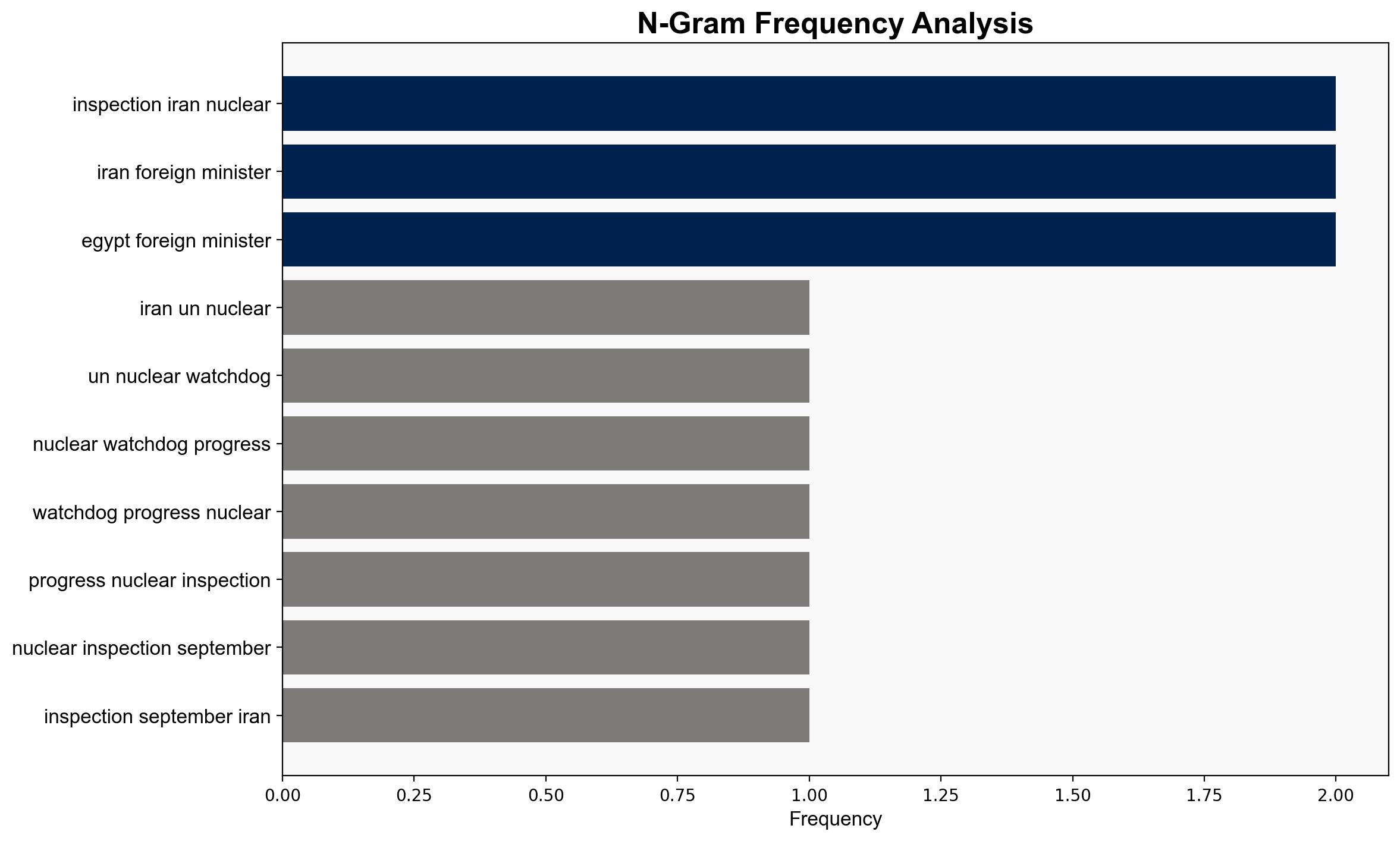Iran UN nuclear watchdog progress on nuclear inspections – DW (English)
Published on: 2025-09-10
Intelligence Report: Iran UN nuclear watchdog progress on nuclear inspections – DW (English)
1. BLUF (Bottom Line Up Front)
The recent agreement between Iran and the International Atomic Energy Agency (IAEA) to resume nuclear inspections represents a potential shift towards increased transparency and cooperation. However, the geopolitical context, including threats of sanctions and regional tensions, complicates the situation. The hypothesis that Iran seeks to alleviate international pressure while maintaining strategic ambiguity is better supported. Confidence level: Moderate. Recommended action: Monitor compliance closely and prepare contingency plans for potential non-compliance or regional escalation.
2. Competing Hypotheses
1. **Hypothesis A**: Iran is genuinely committed to transparency and compliance with international nuclear agreements to avoid further sanctions and improve diplomatic relations.
2. **Hypothesis B**: Iran is engaging in strategic deception, using the agreement to buy time and alleviate international pressure while continuing its nuclear ambitions covertly.
Using the Analysis of Competing Hypotheses (ACH) 2.0, Hypothesis B is more supported due to Iran’s history of non-compliance and the strategic advantage of maintaining ambiguity.
3. Key Assumptions and Red Flags
– **Assumptions**: The agreement will be implemented as announced; Iran’s nuclear program is primarily for peaceful purposes.
– **Red Flags**: Iran’s past suspension of cooperation, the timing of the agreement amidst sanctions threats, and the lack of detailed public disclosure on inspection terms.
– **Potential Bias**: Confirmation bias towards viewing Iran’s actions as deceptive due to historical patterns.
4. Implications and Strategic Risks
– **Geopolitical**: Failure to comply could lead to renewed sanctions and heightened tensions with Western nations.
– **Regional Stability**: Increased risk of conflict with Israel and potential involvement of the United States.
– **Economic**: Sanctions could further destabilize Iran’s economy, impacting regional markets.
– **Psychological**: Erosion of trust in diplomatic negotiations, affecting future agreements.
5. Recommendations and Outlook
- Enhance intelligence collection on Iran’s nuclear activities to verify compliance independently.
- Engage in diplomatic efforts to strengthen the IAEA’s inspection capabilities and transparency.
- Scenario Projections:
- Best Case: Full compliance leads to eased sanctions and improved diplomatic relations.
- Worst Case: Non-compliance results in military conflict and regional instability.
- Most Likely: Partial compliance with ongoing diplomatic negotiations and intermittent tensions.
6. Key Individuals and Entities
– Abbas Araghchi
– Rafael Grossi
– Badr Abdelatty
– Kaja Kallas
7. Thematic Tags
national security threats, nuclear proliferation, regional stability, diplomatic negotiations





